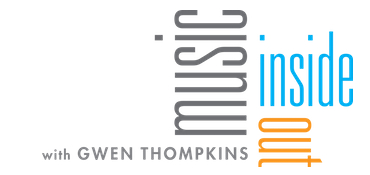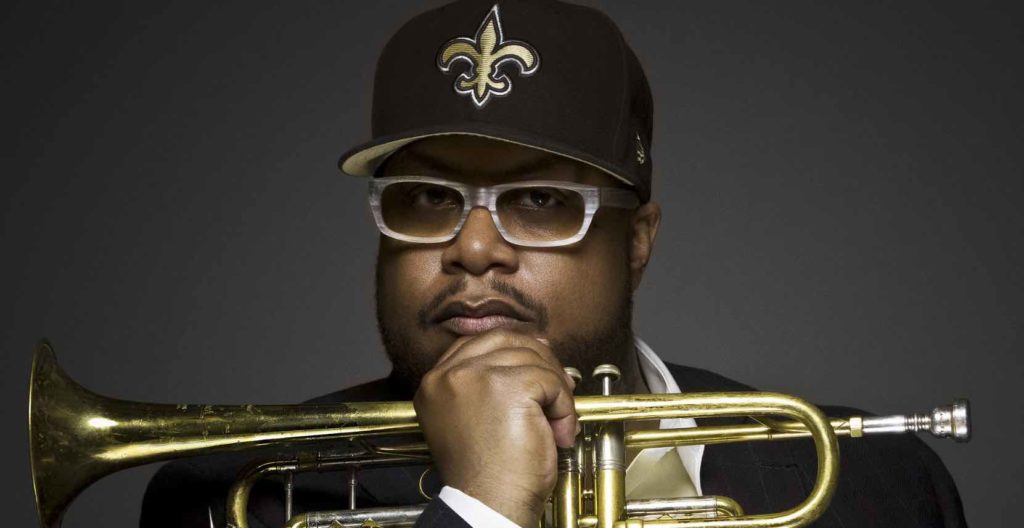
Nicholas Payton
Here’s your ____, What’s your hurry?
Ask him about his hat. The multi-instrumentalist Nicholas Payton wears an assortment of caps, fedoras, and other lids on stage. He first needed the head wear nearly 40 years ago, when he was way too young to play club dates in and around New Orleans, but played them anyway.
“Danny Barker, one of my early mentors, hired me to do a gig,” Payton tells Gwen. “It was a trio: Danny Barker (guitar, banjo), Shannon Powell (drums) and myself. We were playing the Famous Door on Bourbon Street … That was my first regular gig. I remember the first time we played, we were sitting up there … and the owner is like, ‘Who’s that kid up there? He’s too young to play here.’ And Danny Barker was like, ‘Oh, slap a hat on him. Nobody will know.’ And I’m still wearing fedoras to this day.”
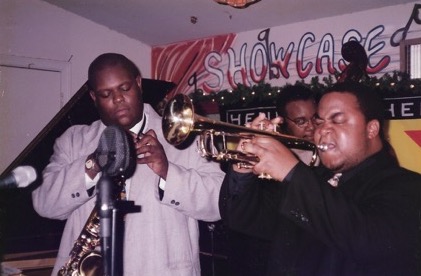
(Photo: Courtesy of Margaret Howze)
Chances are, the sound of Payton’s trumpet convinced that club owner to look the other way. As a child prodigy, Payton was a veteran side man by the time he reached puberty. He’d played in the All-Star Brass Band with New Orleans trumpeter James Andrews … toured in Europe … and performed with his father, the celebrated bassist and sousaphone player, Walter Payton. So who knows how many hats Nicholas amassed over the years? The collection he has also represents his multi-faceted identity as a sideman, band leader, producer, composer, arranger, solo artist and advocate for Black American Music (BAM). That’s the music Payton pledges his allegiance to. For a variety of reasons, he’s not a fan of the word “jazz.”
Finding his Sound
Payton spent his childhood in the company of a rarified crowd of New Orleans talent — Ellis Marsalis, drummer/composer James Black and Professor Longhair were regular visitors to the Payton home, and jam sessions there were common. But he found life-altering inspiration in the recordings of Miles Davis and Freddie Hubbard.
“He had the strength of Armstrong, but he had the fluidity of a Charlie Parker and [John Coltrane],” Payton says of Hubbard, who died in 2008. “Where Armstrong would, ‘boo, bop, ba, da, dee,’ Freddie would play a flurry of notes. And he would have that same power. But it would be like 50 notes … We didn’t know you could do both.”
There were other influences — George Benson, Stevie Wonder, Prince. Each helped young Nicholas find his own sound. What’s more, they helped him find his own work ethic, which — for Payton — entails a lot of time alone. He has recordings in which he plays every instrument. His “Black American Symphony” made its U.S. debut in 2019. He’s developed a unique sound playing trumpet and electric keyboard simultaneously. He’s also started his own record label called Paytone Records.
About the People
But despite a wealth of talent, a Grammy award and a busy touring schedule, Payton demonstrates a surprising humility when he performs.
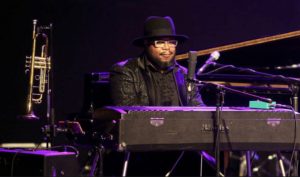
“I’m not a fan of the jazz elitism, I want away from that,” he says. “And I attribute a lot of that to my roots in New Orleans. A lot of times the band is great, but it’s really about the people out there. The guy out there dancing, they may be the star. The woman over there in that fly dress, she may be the star.”
And yet it would be a shame to miss the sight of Payton playing trumpet and Fender Rhodes at the same time. Not many musicians can do that and even fewer would try.
Website
Check out Nicholas Payton’s website for tour and recording information, essays and much more.
Black American Symphony
Nicholas Payton’s Black American Symphony received its US premiere in 2019 at the Pikes Peak Center in Colorado Springs. In composing this work, Payton says he wanted to make the point that “Black music can be symphonic, without necessarily catering to a European aesthetic.” Payton dislikes describing the work as having “African rhythms and European harmony, like Europeans – all due respect – invented harmony. No they didn’t. Harmony exists in nature.” He says he wanted to “revel in sounds that I associate with being Black.” Payton’s Black American Symphony contains elements of blues, gospel, jazz, hip hop, and rhythm and blues. It sums up, Payton writes, “the last 100 years of Black American music and suggests the possibilities of what is ahead for the next 100 years.”
At the same concert Payton will also perform Sketches of Spain. He likens it to “running a marathon … basically you’re holding your trumpet to your face the whole time, for 40 to 45 minutes. You’ve got to pace yourself.”
Read more at Pikes Peak Center.
Playlist
Every week, we provide a playlist of the music on the program. Please support your local musicians and record stores.
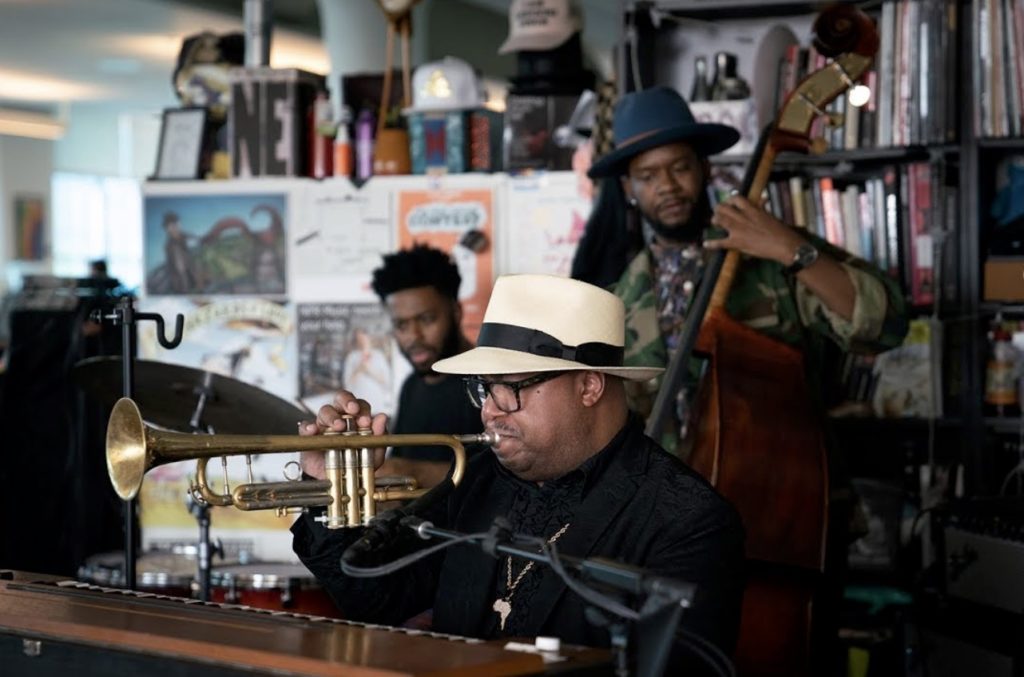
BAM! (a.k.a. Black American Music)
In his blog posts, Nicholas Payton makes the case for widespread use of the term “Black American Music” instead of “jazz.” He’s not alone. Many of the most celebrated figures in the genre, including Duke Ellington, Max Roach and Art Blakey, advocated for the music to be more closely associated with its original creators. They reasoned that jazz begins with the blues, a genre of music that came about as an expression of black people responding to slavery and subjugation in the United States.
“This music was created because these people didn’t have voices, so they found another language and another way to express themselves,” Payton told Gwen. He worries that young people are misinformed.
“There are (school) courses all over the country, all over the world, where they teach jazz, but they never deal with the community from which it comes, because it is all part of the Western pedagogical system,” Payton said. “That’s a problem. You are actually doing a disservice not only to the music, but to your students. You are really not telling them this is a communal music at its essence.”
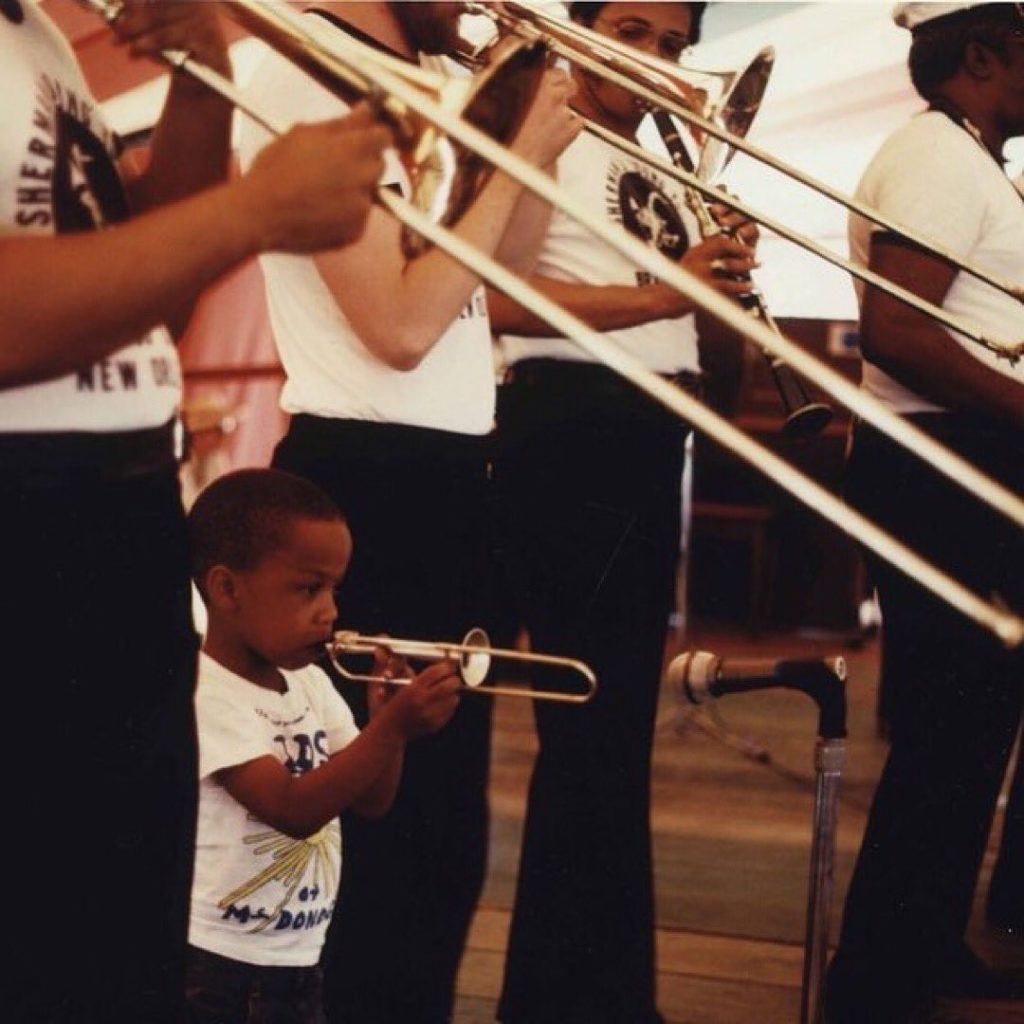
On Stevie Wonder and Prince
Ever wonder why people never seem to get enough of the most popular recordings of Stevie Wonder and Prince? Payton has an answer for that. His favorite albums by Wonder and Prince are Songs in the Key of Life and Purple Rain.
I think it comes down to like, the strength in melody. Memorable melody. Things that stay with you, that after the gig you are still humming on the way to the car, back home, two or three days later, (thinking) ’I can’t get this tune out of my head.’ Both of those albums have that …
Pop songs are pop songs because I believe there is a wellspring of melodies that have existed (since) the beginning of time. When we hear them we know them already … The pop songs that people pick up came to them from this vast region of motifs that exists in the universe. And when as a vessel — as an artist — it passed through you and you give that to people, it resonates with them because they know it. It is like, yes, this series of notes couldn’t have existed in any other way. That is like perfection.
Nicholas Payton
Nicholas Payton Discography: In Progress
In October, 2019, Nicholas Payton released Relaxin’ With Nick on Smoke Sessions Records. With Peter Washington on bass and drummer Kenny Washington (no relation) this two-CD set was recorded live at Smoke in New York. This is on Apple Music and Spotify — also Amazon has the CD.
For those sheltering in place during the coronavirus pandemic there’s Quarantined with Nick (with titles like “Charmin Shortage Blues”) — on Paytone Records, released April 12, 2020. With New Orleans musicians Cliff Hines and Sasha Masakowski, the album was recorded over a two-day period at Payton’s home. Available on Apple Music, Spotify, and Amazon – download only.
As of May, 2020, Payton has a six-selection EP called Maestro Rhythm King — all tunes seem to feature the early drum machine by that name. “Its sexy, synth-backed instrumentation unfolds with lowdown smooth grooves” (via Twitter). The EP is available on Payton’s website for purchase/download.
